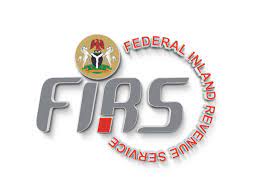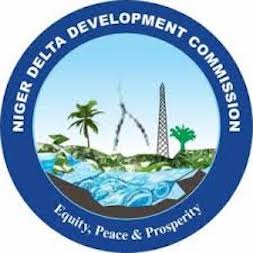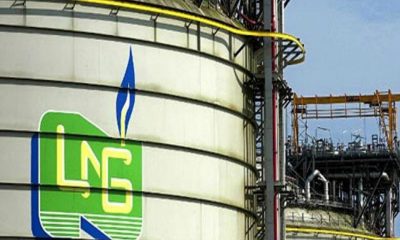Oil & Gas
NLNG Leads Stride to Gas-powered Economy
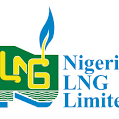
By Asowata Omosuri
A cardinal goal of the Federal Government is to transform the Nigerian economy into a gas-powered economy by 2030.
Ancillary to that is the hope to align the country with the global push for transition to cleaner sources of energy.
To achieve that lofty goal, the federal government adopted gas as the vehicle for its energy transition journey, declaring January 2021 to December 2030 as the Decade of Gas Initiative.
No doubt, the country is blessed with abundant gas resources; 208.62 trillion cubic feet (TCF) of proven gas reserves valued at over 803.9 trillion dollars, and potential upside of 600TCF of gas.
This has fueled the overarching objective of the federal government to utilise the nation’s abundant gas resources for socio-economic growth and development.
In order to actualise this objective, it is imperative for the government to leverage the achievements of the Nigerian LNG Company Ltd. in the global Liquefied Natural Gas (LNG) space.
Indeed, experts believe that NLNG, which marked its 33rd anniversary on May 17, has shown by its developmental strides, that the objective is achievable.
Apart from deepening domestic gas utilisation, the NLNG is said to have contributed significantly to the country financially.
According to information on the company’s website, it has so far contributed 100 billion dollars to the federal government’s coffers, and 6.5 billion dollars in taxes since it started operations.
It also paid 13 billion dollars to the Nigerian National Petroleum Company (NNPC) Ltd. for feed-gas purchase, and 16 billion dollars in dividends to the federal government.
Acknowledging these achievements, the Federal Inland Revenue Service in a statement signed by its Executive Chairman, Mr Muhammad Nami, on May 16, recognised the NLNG as the Most Supportive Tax Payer in the country.
Prompted by this accolade, Dr Muda Yusuf, Chief Executive Officer, Centre for the Promotion of Private Enterprise, told the News Agency of Nigeria (NAN) that the NLNG model should be adopted by the government in other public-private-partnership arrangements.
“The NLNG model has worked very well. It might not be perfect but of all the public private partnership arrangements that we have had, the NLNG model seems to be the best so far.
“The beauty of it is that there is practically no interference or very minimum interference in the management of the place.
“So, there is professionalism in the management, in the allocation of resources, in the recruitment and that has resulted in high level of performance,” he said.
Similarly, Mr Nuhu Yakubu, President, Nigeria Liquefied Petroleum Gas Association (NLPGA) and Managing Director, Banner Energy, said the NLNG was a pride to all Nigerians.
“Not only has the NLNG project endured for 33 years but it is a trail blazer for other similar projects that the Federal Government of Nigeria should mirror in the way NLNG is being administered and managed.
“Aside the huge revenue being generated from the NLNG for the Nigerian government, the company has brought human capital development to bear,” Yakubu said.
He said Nigerians working in NLNG were thorough professionals who were capable of competing with their peers globally.
Yakubu said the impact being made by the NLNG to deepen domestic gas utilisation in Nigeria could not be overemphasised.
“NLNG has gradually progressed from a 150,000MT intervention to the domestic LPG market to 250,000MT to N350,000MT and now to 450,000MT, which is maxing out their entire domestic LPG production to the Nigerian market.
“It is unprecedented and it means NLNG is meeting the yearnings of Nigerians. It is gauging the pulse of Nigerians and responding to it and we wish other corporations of that magnitude can do the same thing.
“We will be able to close the energy gap that we have in Nigeria because we have pervasive domestic energy poverty and need lot of interventions to address the issue so that at least every home in Nigeria will have access to gas.
“The NLNG intervention in the domestic market has catalysed growth and development in infrastructure on the supply side.
“From 2007 when the NLNG intervention started, we had only one terminal in Apapa, Lagos owned by the Pipelines Products Marketing Company.
“Today we have many privately owned coastal terminals across the country and there is also a lot of capital flow for infrastructure development because of the confidence brought in by NLNG,” he said.
However, Mr Michael Umudu, National Chairman, the Liquefied Petroleum Gas Retailers (LPGAR), branch of National Union of Petroleum and Natural Gas Workers (NUPENG), said NLNG needed to do more to ensure supply of LPG in the domestic market.
Umudu said the total amount allocated to the domestic market was insufficient as about 60 per cent of LPG being consumed in Nigeria was imported.
Mr Philip Mshelbila, Chief Executive Officer, NLNG, said the NLNG had for the past 33 years vigorously pursued its vision of being “a globally competitive LNG company, helping to build a better Nigeria.
“Our company has touched lives in significant areas such as economic empowerment, health, education, infrastructure development and sustainable community development.
“Over the years, it harnessed natural gas that would have otherwise been flared, thereby contributing immensely to a cleaner environment.
“And by delivering 100 per cent of its LPG production into the domestic market, it helps Nigerians transition to cleaner cooking fuels.”
Also, Mrs Sophia Horsfall, Manager, Corporate Communications and Public Affairs, NLNG, said the ongoing Train 7 project would help the company increase its allocation to the domestic market.
She said the project was expected to ramp up NLNG’s production capacity by 35 per cent from 22mtpa to around 30mtpa.
Horsfall noted that the project would form part of the investment of over 10 billion dollars, including the upstream scope of the LNG value chain, thereby increasing dividends and taxes accruing to the government.
Incorporated as a Limited Liability company on May 17, 1989, the NLNG was set up to harness Nigeria’s vast natural gas resources and produce Liquefied Natural Gas (LNG) and Natural Gas Liquids (NGLs) for export.
The establishment of NLNG is backed by the Nigeria LNG (Fiscal Incentives, Guarantees and Assurances) Act. Cap N87, Laws of Federation of Nigeria 2004.
The law, amongst other things, provides for the guarantees and assurances by the federal government to the company and its shareholders.
The NLNG is an incorporated Joint-Venture owned by four shareholders: the federal government, represented by NNPC Ltd. (49 per cent), Shell Gas B.V. (25.6 per cent), Total Gaz Electricite Holdings France (15 per cent) and Eni International N.A. N. V. S.àr.l (10.4 per cent).
Today, NLNG has a total production capacity of 22 Million Tons Per Annum (mtpa) of LNG and 5mtpa of Natural Gas Liquids (NGLs) from its six-train plant complex.
The company has 16 long-term Sale and Purchase Agreements (SPAs) with 10 buyers and controls about six per cent of global LNG trade.
By the strides of NLNG in its 33 years of existence, and the groundswell of goodwill, many Nigerians, and experts, believe that the company has the wherewithal to lead Nigeria’s march towards a gas-powered economy.
Asowata Omosuri is of the News Agency of Nigeria (NAN)
Oil & Gas
Lawyers Integral to Optimal Regulatory Compliance in Oil Business – NMDPRA
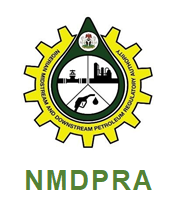
The Midstream and Downstream Petroleum Regulatory Authority (NMDPRA) said the role of legal practitioners is critical across the midstream and downstream energy business value chain in the promotion of optimal regulatory compliance.
Chief Executive, NMDPRA, Farouk Ahmed said this on Monday in Abuja at its 2025 General Counsel and Legal Advisers Forum for Midstream and Downstream Petroleum Companies in Nigeria.
The forum has its theme as ‘Advancing a Collaborative Compliance Culture in Nigeria’s Midstream and Downstream Petroleum Sectors’.
Ahmed was represented by Ogbugo Ukoha, Executive Director, Distribution System, Storage and Retailing Infrastructure, NMDPRA.
He said that the sector’s complexity required a unified compliance culture, rooted in robust and enabling legal frameworks, transparency, accountability and shared responsibility.
“The scope of operations of the sector covers hydrocarbon processing, wholesale marketing, transportation, storage, distribution and retail, and its complexity requires more than technical efficiency.
“The role of legal practitioners is critical across the midstream and downstream energy business value chain.
“They help to promote optimal regulatory compliance to set rules and standards of operations in our complex operational and volatile market environment,’’ he said.
Ahmed said that strategic and pragmatic solutions would be established from the forum to enhance performance of the sector towards creation of shared value for investors and the extensive market of Nigeria and the region.
He said that the Petroleum Industry Act (PIA 2021) had fundamentally restructured Nigeria’s petroleum industry by delineating regulatory responsibilities of the industry into the Upstream, midstream and downstream Petroleum operations.
According to him, the Act prescribed that all operations in the midstream and downstream sectors could only be conducted under appropriate licenses, permits and authorisations granted by the NMDPRA.
He said the PIA also mandated NMPDRA to make regulations concerning midstream and downstream petroleum operations in consultation with its licensees and stakeholders.
“As a result of the feedback received from our stakeholders on the need to strengthen regulatory compliance through simplified regulations, NMDPRA is implementing an inclusive stakeholder process of streamlining the gazetted and published regulations.
“This process will mitigate the complexities of navigating and implementing numerous regulations; eliminate inconsistencies and repetitions across multiple regulations; streamline regulatory processes for ease of business; and encourage investments in the industry.
“Kindly use this forum to critically review and make recommendations on the above.
This will enable us to improve the overall compliance of operators and the performance of the regulatory instruments (Legal frameworks and licenses) in the midstream and downstream sectors,” He said.
He said that NMDPRA would continue its commitment to effective stakeholder collaborations that would foster ease of doing business, investor confidence and sustainable operations.
Deputy Speaker, House of Representatives, Benjamin Kalu said that the PIA as a testament to the foresight and dedication of the National Assembly, had fundamentally reshaped Nigeria’s petroleum sector.
Kalu was represented by Ugochinyere Ikenga, Chairman, House Committee on Petroleum Resources, Downstream.
He said that the act had proven how strategic legislation could serve as a potent catalyst for compliance, investment attraction, and robust sector growth.
“For the PIA to remain truly effective, adapting to a dynamic global energy landscape and addressing unforeseen challenges, there must be an institutionalised robust mechanism for its continuous refinement.
“This is precisely where the invaluable insights of our nation’s petroleum experts and our general counsels, the legal architects and navigators of this complex framework, become indispensable.
“For or further synchronisation and effective post-legislative scrutiny, we must actively solicit and integrate your concerns.
“We envision a future where the National Assembly’s specialised committees regularly invite you professionals to public hearings and dedicated technical working groups,” he said.
Kalu said that this proactive engagement would transform abstract legal principles into tangible operational realities, furnishing us with the real-world data and case studies needed to truly understand the PIA’s strengths and weaknesses.
“Your feedback will illuminate where the PIA might be technically challenging, where legal interpretations create bottlenecks, or where new global trends necessitate legislative evolution,’’ he said.
Oil & Gas
OPEC Launches Campaign for Sustained Global Upstream Investment
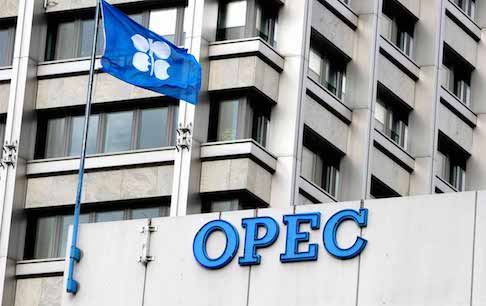
Torough David, Abuja
The Organization of the Petroleum Exporting Countries (OPEC) has launched a global investment drive seeking attention to creating value in the upstream oil and gas industry.
The Organization is calling for urgent and sustained investment in the global upstream oil sector, warning that a cumulative $14.
9tn will be required between 2025 and 2050 to meet projected demand and prevent a future energy crisis.This investment figure, equivalent to $574bn annually, represents the bulk of the $18.2 trillion in total oil-related investments needed over the 25-year period.
The OPEC had projected that $18.2tn investment would be required to meet global oil demand between 2025 and 2050, as it dismissed the notion of a looming peak in fossil fuel consumption as a “fantasy.
”According to the 2025 World Oil Outlook of OPEC, oil demand is projected to rise from 103.7 million barrels per day in 2024 to 116.5 mb/d by 2045 and peaking at around 123 mb/d by 2050, an 18.6 per cent increase over 26 years.
It also noted the need for continued investments in various segments of the sector to meet this demand.
It noted that of the total investment requirement, upstream operations, including exploration and production, are expected to gulp the lion’s share at $14.9tn, or $574bn per year, as producers scramble to ramp up supply. Midstream and downstream investments will require $1.3tn and $2tn, respectively.
“Cumulative oil-related investment requirements to meet projected demand are assessed at $18.2tn over the period between 2025 and 2050.
“This is marginally higher than projected in the WOO 2024, as despite the outlook period being one year shorter, this Outlook has also seen long-term oil demand revised upwards, and liquids supply has followed.
“Total upstream investment requirements make up the bulk of the needed capital expenditure, now projected at $14.9tn, or $574bn per annum. Downstream and midstream investment requirements are projected at $2tn and $1.3tn, respectively,” the report said.
OPEC Secretary-General, Haitham Al Ghais, said continued investments are essential to guarantee future energy security and affordability, especially in the Global South.
“There is no peak oil demand on the horizon,” Al Ghais declared in the report’s foreword. “Efforts to rapidly phase out fossil fuels are unrealistic and disregard energy security, affordability, and socio-economic realities of billions still lacking basic energy access,” he said.
Oil & Gas
FG Declares End to Dormant Fields on Oil Production

By David Torough, Abuja
In a renewed push to meet its OPEC production quota and 2025 budgetary targets, the Federal Government yesterday declared an end to the era where oil companies acquire field licenses and leave them dormant.
The government warned that it would no longer tolerate operators lacking the technical and financial capacity to develop oil fields, stressing that such licenses would be withdrawn.
Minister of State for Petroleum Resources (Oil), Senator Heineken Lokpobiri issued the warning at the ongoing 2025 Nigeria Oil and Gas Energy Week in Abuja.
Lokpobiri said the government was determined to maximize oil production by ensuring that only serious investors retain access to Nigeria’s hydrocarbon resources.
The conference had the theme: “Accelerating Energy Progress Through Investment, Global Partnerships and Innovation”.
Lokobiri stated that, “In our ongoing drive to boost national oil production, the Federal Government remains resolute in ensuring that maximum value is derived from upstream assets currently held by operators.
“This objective has taken on greater urgency as global financing for oil and gas projects continues to tighten, making it increasingly difficult for all operators to secure the capital needed to develop these assets.
“It is no longer acceptable for critical national resources to remain in the hands of companies that lack the technical or financial capacity to optimize them or worse, those who use such licenses merely as a lever to access scarce capital, only to divert it to unrelated ventures.
“Our oil and gas industry has witnessed far too many cautionary tales of this nature, and we must now draw a clear line”.
He said the government has engaged an international consultant to evaluate the 273 fees and rates faced by oil companies in the country to align them with international best practices.
Also, the Minister of State Petroleum Resources (Gas), Ekperikpe Ekpo said Nigeria had proven gas reserves of over 200 trillion cubic feet, yet value would only be created when resources were developed and utilised.
Ekpo said that through the Decade of Gas initiative, the country was focused on translating its vast gas wealth into tangible socio-economic benefits.
This, he said, included driving industrialisation, expanding power generation, increasing domestic Liquefied Petroleum Gas (LPG) usage, deepening gas-to-transport adoption, and growing gas export capacity.
Group Chief Executive Officer of NNPC Ltd, Engr. Bashir Bayo Ojulari disclosed that the Ajaokuta-Kaduna-Kano (AKK) Gas Pipeline has successfully crossed the River Niger, boosting the hope of the project’s completion by Q4 2025.
Ojulari, who described the development as a significant milestone, said the feat was achieved through effective and innovative contract reengineering and industry collaboration.
He also disclosed that for the first time in a long while, the nation enjoyed 100% crude oil pipelines availability throughout June 2025.
He said the feat which was possible through the industry-wide security interventions led by the NNPC helped to boost crude oil production.
He however called for more investments to boost production, adding that NNPC Ltd has been able to turn the narrative around by consistently meeting its cash-call obligations to Joint Venture operations.
He said the Petroleum Industry Act (PIA) has placed NNPC Ltd in a good position to live up to its responsibility of leading the industry in financing projects.

